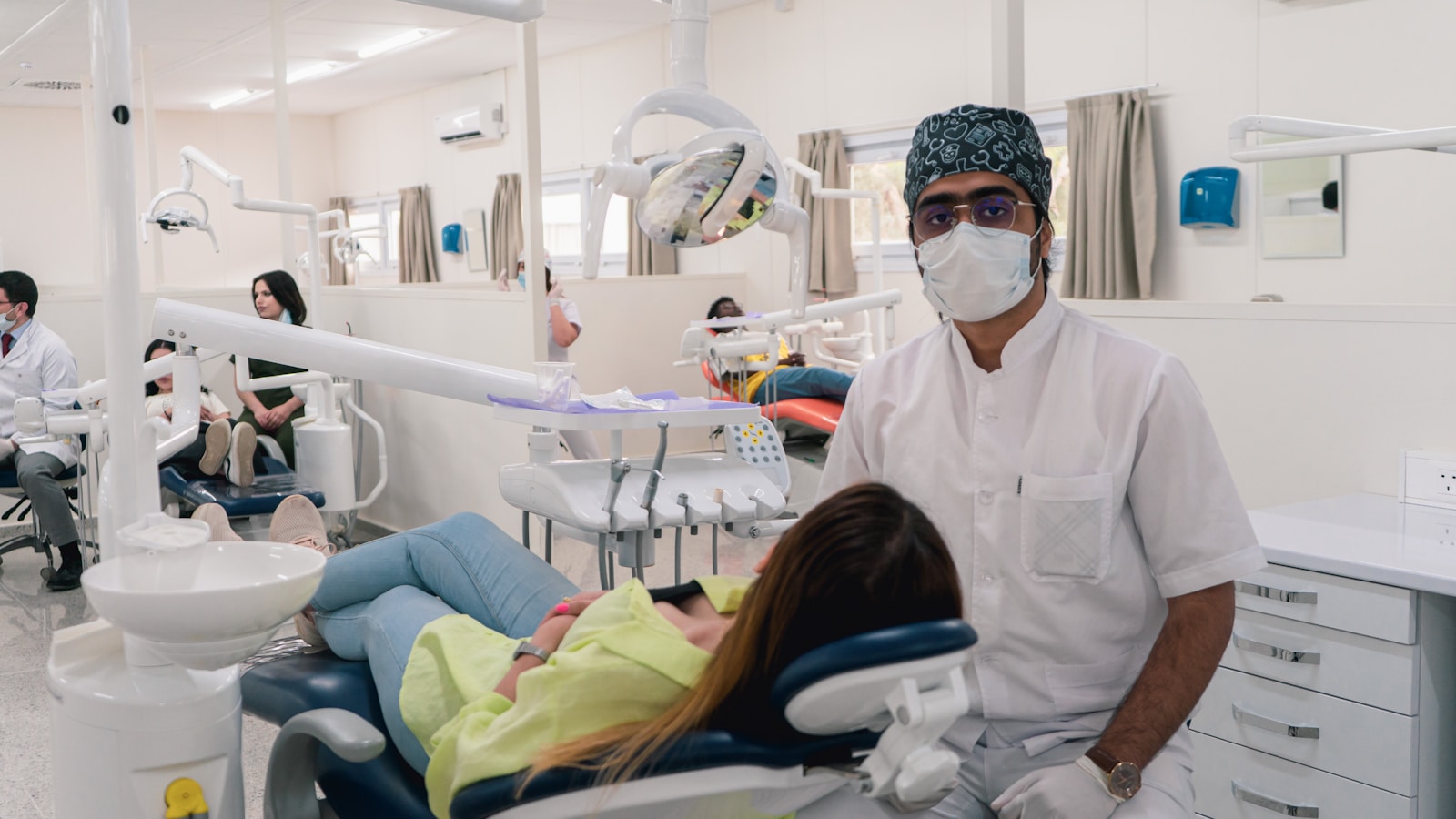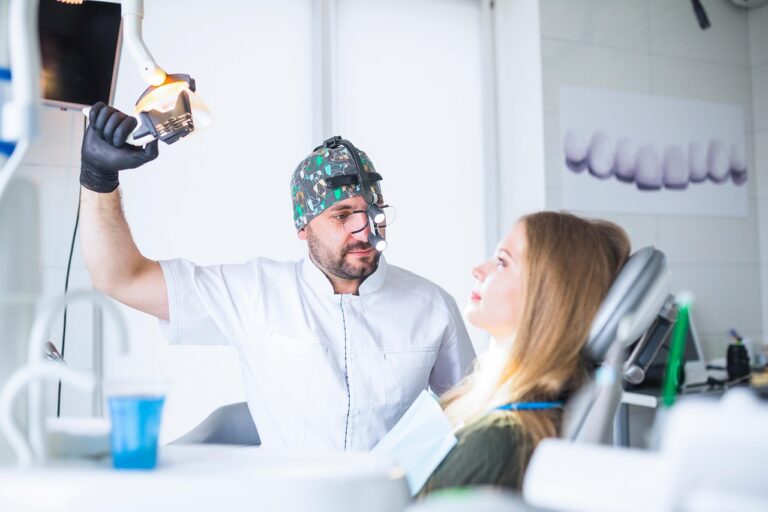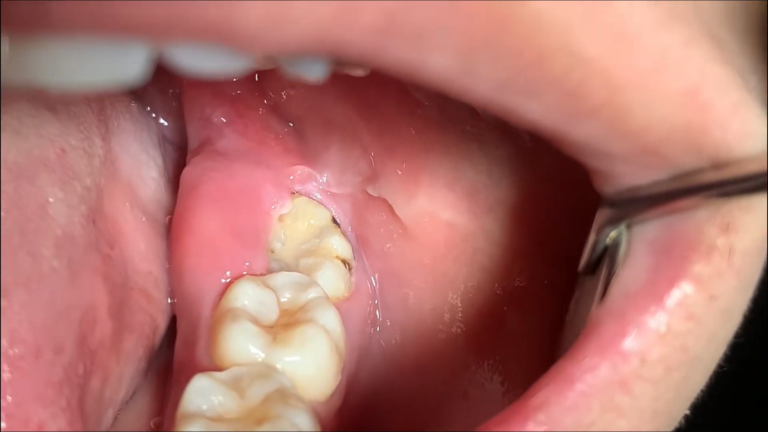Alternatives to Wisdom Tooth Extraction Surgery
When most people hear the words “wisdom teeth,” their minds go straight to surgery. And while extraction is often the most recommended course of action—especially in cases of impaction or infection—it’s not always the only option.
Depending on your specific situation, you may not need surgery right away… or at all. In this blog, we’ll explore possible “alternatives to wisdom tooth extraction”, when they’re appropriate, and what you should consider before making any decisions.
Watchful Waiting (Monitoring)
Believe it or not, not all wisdom teeth are troublemakers. In some cases, they come in straight, fully erupt through the gums, and settle nicely into place behind your second molars. These teeth are fully functional, properly aligned, and easy to keep clean with brushing and flossing. If that sounds like your situation, you may not need surgery at all—at least not right away.
This approach is called watchful waiting or active monitoring. Rather than jumping straight to extraction, your dentist will keep an eye on your wisdom teeth over time to ensure they remain healthy and stable.
What does that look like in practice?
- Routine dental check-ups (typically every 6 months)
- Periodic panoramic X-rays to monitor root development, bone levels, and spacing
- Assessment for signs of cavities, crowding, bone loss, or gum disease in and around the wisdom teeth
As long as your wisdom teeth aren’t causing any pain, interfering with nearby teeth, or showing signs of decay or infection, there’s no urgent reason to remove them.
However, this conservative approach does require commitment and consistency. Even if your wisdom teeth seem “quiet” now, that doesn’t guarantee they’ll stay that way forever. Problems can develop slowly and without obvious symptoms—such as bone cysts, decay in the back of the second molar, or early signs of gum inflammation.
That’s why, if you choose watchful waiting, you’ll need to:
- Practice excellent oral hygiene (flossing behind the last molars can be tricky but essential)
- Report any new pain, swelling, or difficulty chewing
- Stay diligent with dental visits so any changes can be caught early
Leaving wisdom teeth in place can be safe, but it’s not a “set it and forget it” situation—it requires long-term attention and a cooperative relationship with your dental team.
Operculectomy: Removing the Gum Flap
Sometimes a wisdom tooth starts to erupt but doesn’t fully break through the gum, leaving a small flap of tissue hanging over part of the crown. This soft tissue flap, called an operculum, can become a haven for food debris and bacteria. The result? A localized infection called pericoronitis, which can be incredibly painful and may cause swelling, bad breath, difficulty chewing, or even limited jaw movement.
If your pain is caused by this gum flap—not necessarily by the tooth itself—your dentist might recommend a minor procedure called an operculectomy. This involves:
- Using a small laser, scalpel, or electrosurgical tool
- Gently removing the excess gum tissue
- Exposing more of the tooth surface for easier cleaning and reduced irritation
Operculectomy is usually done under local anesthesia and takes only a few minutes. Recovery is typically quick and mild compared to full tooth extraction.
However, it’s important to understand that this is usually a temporary solution. In some cases:
- The gum tissue may grow back
- Pericoronitis may recur, especially if the tooth remains partially impacted
- The tooth may still need to be extracted eventually if it causes further problems
That said, for mild or first-time cases, operculectomy can provide immediate relief without having to undergo full surgical removal. It’s especially helpful for patients who can’t have a tooth removed right away due to medical conditions, travel, or other timing issues.
Your dentist will evaluate whether this option is appropriate based on your specific anatomy, symptoms, and future dental plans.
Antibiotic and Medication Management
In an ideal world, you’d be able to schedule wisdom tooth removal as soon as a problem arises. But life doesn’t always cooperate. Sometimes, surgery must be delayed—whether due to travel plans, medical conditions, pregnancy, or even something as simple as personal scheduling conflicts. In these situations, dentists may turn to conservative management with medications to help control symptoms and stabilize the area until surgery becomes feasible.
Here’s what that usually involves:
- Antibiotics: These are prescribed when signs of infection are present—such as swelling, pus, or difficulty opening the mouth. Antibiotics work by reducing the bacterial load and calming active inflammation. However, they’re not a cure; they simply buy you time and help avoid a worsening infection.
- Anti-inflammatory painkillers: Medications like ibuprofen or prescription NSAIDs help reduce both pain and swelling. They’re especially useful if the tooth is pressing against nearby structures or if you’re dealing with gum inflammation around a partially erupted tooth.
- Antiseptic rinses: Your dentist may recommend a chlorhexidine rinse or a saltwater regimen to help keep the area clean and minimize bacterial buildup, particularly if food or plaque is getting trapped around a partially erupted wisdom tooth.
This approach is best seen as a short-term management strategy. It’s a bit like placing a temporary patch on a leaky pipe—it might stop the dripping for now, but it won’t fix the problem permanently.
Most importantly, using antibiotics or painkillers to “get by” shouldn’t be mistaken for a long-term solution. If the tooth is impacted, decayed, or damaging nearby structures, the symptoms will likely return—or worsen—once the medication wears off. That’s why your dentist will typically use this strategy to stabilize the situation, not replace the need for surgical removal when it’s truly indicated.
Orthodontic Evaluation
When wisdom teeth are just beginning to form, there may be a narrow window of opportunity to intervene early—especially in younger patients whose jaws are still developing. In some cases, an orthodontist may assess whether expanding the dental arch or improving overall alignment might create enough space for wisdom teeth to erupt more favorably.
Let’s be clear: orthodontic treatment does not prevent impaction in most cases. Braces and appliances are primarily used to straighten teeth and correct bite issues. However, in very specific situations—particularly in early adolescence—orthodontic guidance can help:
- Encourage more ideal tooth eruption paths
- Minimize crowding that could worsen if wisdom teeth try to erupt later
- Address spacing or jaw structure issues that contribute to third molar problems
For example, if a child or teen has overcrowding and is already undergoing orthodontic care, the orthodontist may design the treatment plan with future wisdom tooth development in mind. They may take panoramic X-rays and work closely with a general dentist or oral surgeon to monitor how the third molars are developing over time.
However, once a wisdom tooth is already impacted or fully formed, orthodontic intervention is unlikely to change its position or prevent complications. For adults, orthodontics is more about managing the overall bite than creating space for molars that may already be trapped in bone or gum tissue.
That said, orthodontic evaluation still plays an important role in long-term planning. Even if it doesn’t eliminate the need for extraction, it ensures that your teeth remain stable before and after surgery—and helps prevent relapse from crowding or shifting caused by erupting wisdom teeth.
Coronectomy: Partial Tooth Removal
In most cases, wisdom tooth extraction involves removing both the crown (the visible part of the tooth) and the roots that extend deep into the jawbone. But what happens when those roots are positioned dangerously close to major nerves?
That’s where a procedure called coronectomy comes in—a specialized approach designed for situations where full extraction could put you at risk for nerve injury, especially to the inferior alveolar nerve (which supplies sensation to the lower lip, chin, and teeth).
What Is a Coronectomy?
A coronectomy is a partial tooth removal procedure. Instead of extracting the entire wisdom tooth, your oral surgeon will carefully remove only the crown (the top part) of the tooth, while leaving the roots undisturbed in the jawbone.
The goal is to:
- Eliminate pressure from the crown against surrounding structures
- Reduce the risk of infection or decay associated with the partially erupted tooth
- Avoid nerve damage, which can result in long-term numbness or tingling if the roots are close to critical nerves
When Is a Coronectomy Recommended?
This technique is usually considered in high-risk cases, where imaging (such as a CBCT scan or panoramic X-ray) reveals that:
- The roots of the wisdom tooth are entwined with or very close to the inferior alveolar nerve
- Full extraction may lead to temporary or permanent nerve damage
- The tooth itself is not infected, decayed, or mobile
Coronectomy is not appropriate for all patients. For example, if the tooth is severely infected, damaged, or loose, leaving the roots in place may pose a greater risk than removing the entire tooth.
Why Choose Coronectomy?
While not commonly performed, a coronectomy is a nerve-sparing option that provides peace of mind when full extraction carries significant risk. It’s a perfect example of how modern dentistry offers individualized treatment plans based on anatomy, risk level, and patient safety.
If your oral surgeon recommends this option, it’s because they’ve taken every precaution to preserve both your oral health and your nerve function—and coronectomy offers the best balance between effective treatment and long-term protection.
Final Thoughts
To be clear: “not all wisdom teeth need to be extracted”, and not all extractions are emergencies. While surgery remains the most definitive solution for impacted, painful, or problematic third molars, there are circumstances where **alternative approaches** may be safer, more practical, or simply more appropriate for your current stage of life.
The best decision depends on:
– The position and health of your wisdom teeth
– The presence or absence of symptoms
– Your age, overall health, and personal comfort level
– Imaging results and expert dental evaluation
If you’re unsure whether you need surgery—or you’re hoping to delay it—don’t guess. Talk to your dentist or oral surgeon. A thorough exam and an honest conversation are the first steps to making the right call for your smile and your future.






